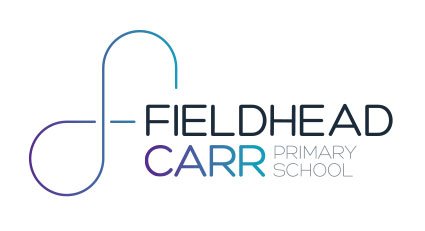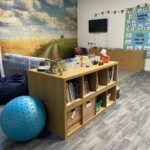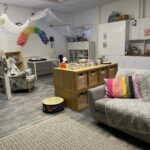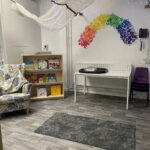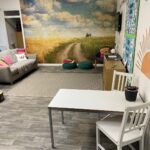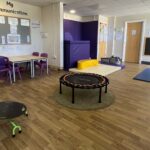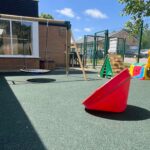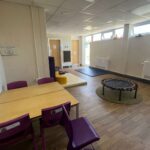Special Educational Needs and Disabilities (SEND)
Fieldhead Carr Primary School is a highly inclusive primary school, which strives to meet the individual needs of all its learners. We work in partnership with children, parents and other agencies to provide the best possible outcomes for all our children, including those with a range of additional and complex needs. The school’s SEN policy and procedures ensure that high expectations, early intervention and appropriate support for all our children are in place to ensure our children reach their full potential.
‘The school quickly identifies pupils who have special educational needs and/or disabilities (SEND). Staff adapt their teaching to ensure that pupils with SEND achieve well across the curriculum. For a small number of pupils with SEND a very personalised curriculum is in place. This helps to meet their very specific, individual needs. Knowledgeable staff ensure that these pupils continue to learn and develop a wide range of skills. Staff work closely with specialists to ensure pupils and families receive what they need.’
‘Pupils are highly accepting of differences and understand why they should treat each other well. They are welcoming to others who join their school. They recognise that any form of discrimination would not be acceptable. One child said, ‘There is no judging of others here.’ OFSTED Feb 2024
Meet the Inclusion Team:

Mrs Widnall
Assistant Head (Inclusion)
SENDCO
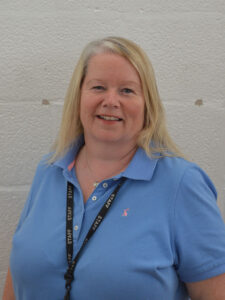
Mrs Sinker
Inclusion Team Lead
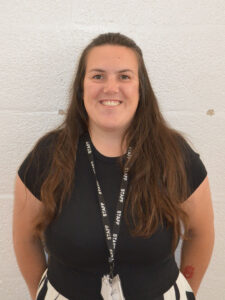
Mrs Robinson
Deputy SENDCo
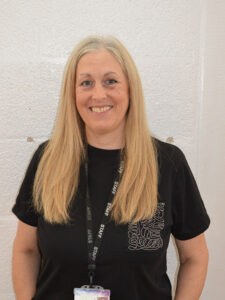
Mrs Duplex
Autism Unit Manager

Mrs Whitehead
Thrive practitioner
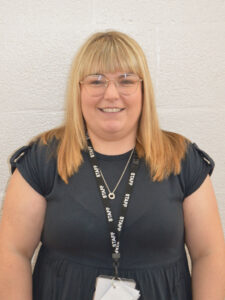
Miss Geldard
ASD Lead Practitioner
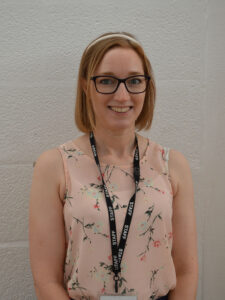
Miss Exley
SEN administration
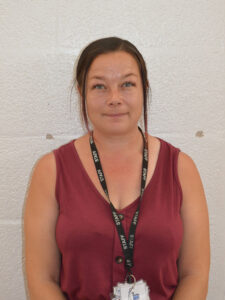
Mrs Haney
SEMH Practitioner
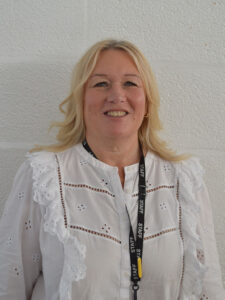
Mrs Vicky
Safeguarding Attendance Officer
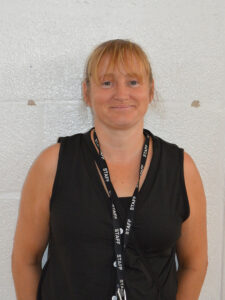
Miss Lumb
SALT Practitioner
SEN pupils is overseen and managed by the SENDCo and Deputy SENDCo, with support from the team. If you wish to contact the team to make an appointment, please call 0113 2930226 or email hello@fieldheadcarr.leeds.sch.uk
The inclusion team’s role is to provide professional guidance to all staff and work closely with parents and outside agencies to ensure all of our children with SEND receive appropriate support and high-quality teaching.
The team’s main roles are as follows:
- Supporting the identification of children with special educational needs.
- Overseeing the day-to-day operation of the school’s SEN policy
- Co-ordinating provision for children with SEN.
- Liaising with parents of children with SEN.
- Liaising with other providers, outside agencies, educational psychologists and external agencies.
- Ensuring that the school keeps the records of all pupils with SEN up to date.
- Advising on the graduated approach to SEND within school and supporting school staff in their delivering this
At our school we support children with a wide range of Special Educational Needs and Disabilities (SEND), including:
- Cognition and Learning – when a child finds learning, remembering or understanding new information more difficult than others.
- Sensory Impairments – such as difficulties with hearing or vision.
- Behavioural, Social, Emotional and Mental Health Needs – when a child needs help with managing feelings, behaviour or relationships.
- Speech, Language and Communication Needs – when a child finds it hard to develop language, understand others or express themselves.
- Physical Disabilities – where a child may need support with movement or physical access.
- Medical Needs – when a child has a health condition that affects their daily school life.
- Autistic Spectrum Disorder (ASD) – where a child may experience differences in communication, social interaction and flexibility of thought.
- Attention Deficit Hyperactivity Disorder (ADHD) – where a child may struggle with attention, concentration or managing impulses.
School Offer and Graduated Response
The Children and Families Act 2014 underpins national reforms to improve services for vulnerable children and families. Part 3 of the Act focuses on Special Educational Needs and Disabilities (SEND), introducing key measures such as Education, Health and Care (EHC) plans, the Local Offer, and a stronger emphasis on joint working across education, health and social care.
The SEND Code of Practice: 0 to 25 years (updated September 2024) sets out statutory guidance for schools, colleges, early years providers, health bodies and local authorities. It ensures that children and young people with SEND, from birth to 25, receive consistent and outcome-focused support, with children, young people and their families at the centre of decision-making.
In Leeds, these national duties are delivered through the city’s Local Offer. This provides clear information about the support and services available for children and young people with SEND and their families.
Schools in Leeds follow the Graduated Approach (“Assess, Plan, Do, Review”), ensuring early identification of needs and access to targeted support. Where appropriate, schools work with Leeds City Council and partner services to consider whether an EHC needs assessment may be required. This approach enables children and young people with SEND to achieve the best possible outcomes and prepares them effectively for adulthood.

Working together
Parents are integral partners in their child’s journey through school and are invited to attend regular parent’s evenings and additional review meetings. Where a child has more complex needs, parents are also invited to reviews which may involve other professionals. Parents are invited to request a meeting with a member of the Inclusion Team should any concerns arise. Our parents are also encouraged to engage in their child’s learning in a range of other ways such as supporting their child with their homework, joining family learning classes or utilising resources provided by school to help their child.
Staff in school are trained and work alongside professionals from outside agencies to develop their skills and knowledge and expertise in specific areas of Special Educational Needs. Staff are able to offer a wide range of support and strategies to support inclusion within our school. Our school works alongside a range of outside agencies to maximise learning opportunities and to help pupils reach their full potential. We work regularly with agencies such as Seacroft and Manston Cluster support, Speech and Language Therapy, Educational Psychology, STARs, Complex Needs Services, Physiotherapy, Occupational Therapy, CAMHs and Social Care.
Our learning environment is accessible and appropriate for our pupils and is adapted when necessary. The school has two disabled toilets, a hygiene suite, a ‘Thrive’ nurture room, ‘Snapdragons’ an ASD provision and an intervention room.
The following policies are available and reflect the school’s commitment to inclusion, safety and well-being of children:
- Safeguarding/ Child Protection policy
- Mental Health Intent Statement
- SEMH Policy
- Behaviour Policy
- Teaching and Learning policy
- Single Equality Scheme and Action Plan
- Anti-Bullying Policy
- Health and Safety Policies
- Freedom of Information and Publication Scheme
If you wish to discuss anything in relation to our school offer, please contact a member of our inclusion team.
Sensory room
Our school is proud to have a dedicated Sensory Room, designed to provide a calm and supportive space for children who may benefit from additional sensory input or a quiet environment. The room offers a range of resources such as soothing lights, textures, sounds and interactive equipment, helping children to feel regulated, relaxed and ready to learn. It can be used for individual or small group sessions, supporting wellbeing, focus and the development of self-regulation skills. The Sensory Room is an important part of our inclusive approach, ensuring that every child has the opportunity to thrive.
Thrive
As a Thrive school, we are committed to supporting the social and emotional development of all our children. Our Thrive Room is a safe, welcoming space where pupils can take part in activities designed to help them build confidence, resilience and positive relationships. The room provides a calm environment for children to explore and understand their feelings, develop self-regulation skills, and feel supported when they need extra time and space. By using the Thrive Approach, we can nurture emotional wellbeing alongside academic learning, ensuring every child is ready to engage, learn and grow.
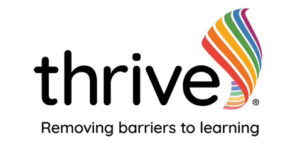
Snapdragons
Snapdragon is a nurturing and inclusive classroom designed to support children with complex learning differences, communication needs, and/or autism. Our specialist (unofficial) provision is for pupils who have an Education, Health and Care Plan (EHCP), or who are currently undergoing an EHC Needs Assessment. Snapdragon pupils usually have a diagnosis of autism or are on the autism assessment pathway.
We understand that every child is unique. That’s why our classroom environment is carefully designed to meet individual sensory needs and promote a sense of safety, calm, and connection. When children feel regulated and supported, they are ready to learn, grow, and thrive.
Our Snapdragon provision includes:
- A fully equipped hygiene suite and accessible toilet area
- A purpose-built indoor sensory space
- Secure and stimulating outdoor play spaces
Children in Snapdragon follow a personalised, sensory-based curriculum built around engaging topics and themes. We also provide focused teaching of core subjects, always tailored to suit each child’s individual learning profile. Communication, interaction, and independence are at the heart of everything we do.
Most importantly, learning in Snapdragon class is full of fun! We believe children learn best when they are happy, confident, and supported to be themselves.
Leeds Local Offer
- Education support
- Health Services
- Social Care support
- Play and leisure activities
- Getting ready for adult life
- Education, Health and care plans
Email: llo@leeds.gov.uk
Visit the Leeds Local Offer here
